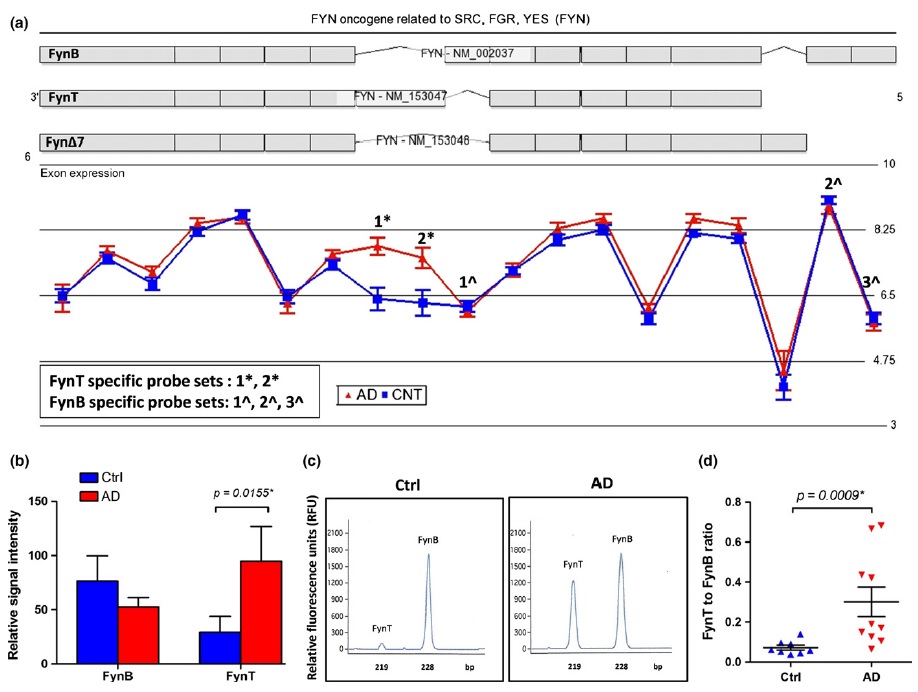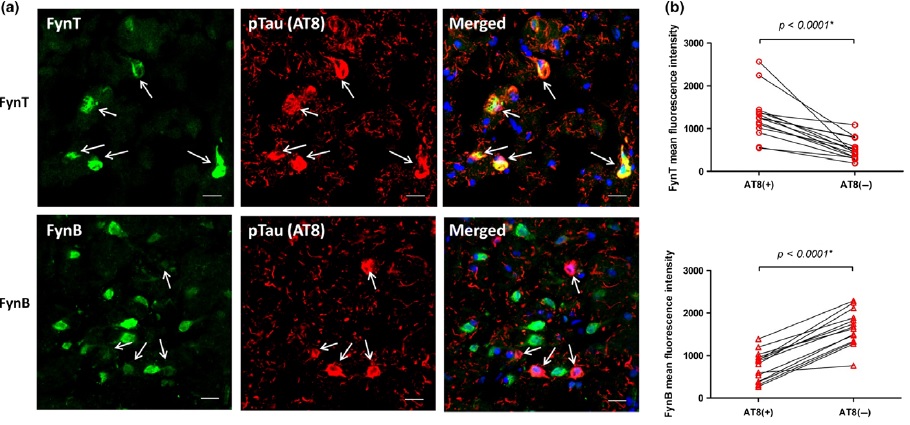Hot Off the Press: An isoform-specific role of FynT tyrosine kinase in Alzheimer’s disease

Recent studies suggest that Fyn tyrosine kinase forms part of a toxic triad with β-amyloid and tau in the disease process. However, it is not known whether Fyn is associated with the pathological features of AD in an isoform-specific manner. In this study, we identified selective up-regulation of the alternative-spliced FynT isoform with no change in FynB in the AD neocortex. Furthermore, gene ontology term enrichment analyses and cell type-specific localization of FynT immunoreactivity suggest that FynT up-regulation was associated with neurofibrillary degeneration and reactive astrogliosis. Interestingly, significantly increased FynT in NFT-bearing neurons was concomitant to decreased FynB immunoreactivity, suggesting an involvement of alternative splicing in NFT formation. Furthermore, cultured cells of astrocytic origin have higher FynT to FynB ratio compared to those of neuronal origin. Lastly, primary rat mixed neuron-astrocyte cultures treated with Aβ25-35 showed selective up-regulation of FynT expression in activated astrocytes. Our findings point to an isoform-specific role of FynT in modulating neurofibrillary degeneration and reactive astrogliosis in AD. Fyn kinase is known to interact with β-amyloid and tau, and contributes to Alzheimer’s disease pathogenesis. In this study, it is shown that the alternatively spliced FynT isoform is specifically up-regulated in the AD neocortex, with no change in FynB isoform. The increased FynT correlated with markers of neurofibrillary degeneration and reactive astrogliosis. In primary mixed cultures, treatment with amyloid peptides specifically up-regulated FynT in activated astrocytes. This study points to altered alternative splicing as a potential pathogenic mechanism in AD.

Reference
Lee C, Low CY, Francis PT, Attems J, Wong PT, Lai MK, Tan MG (This paper).
